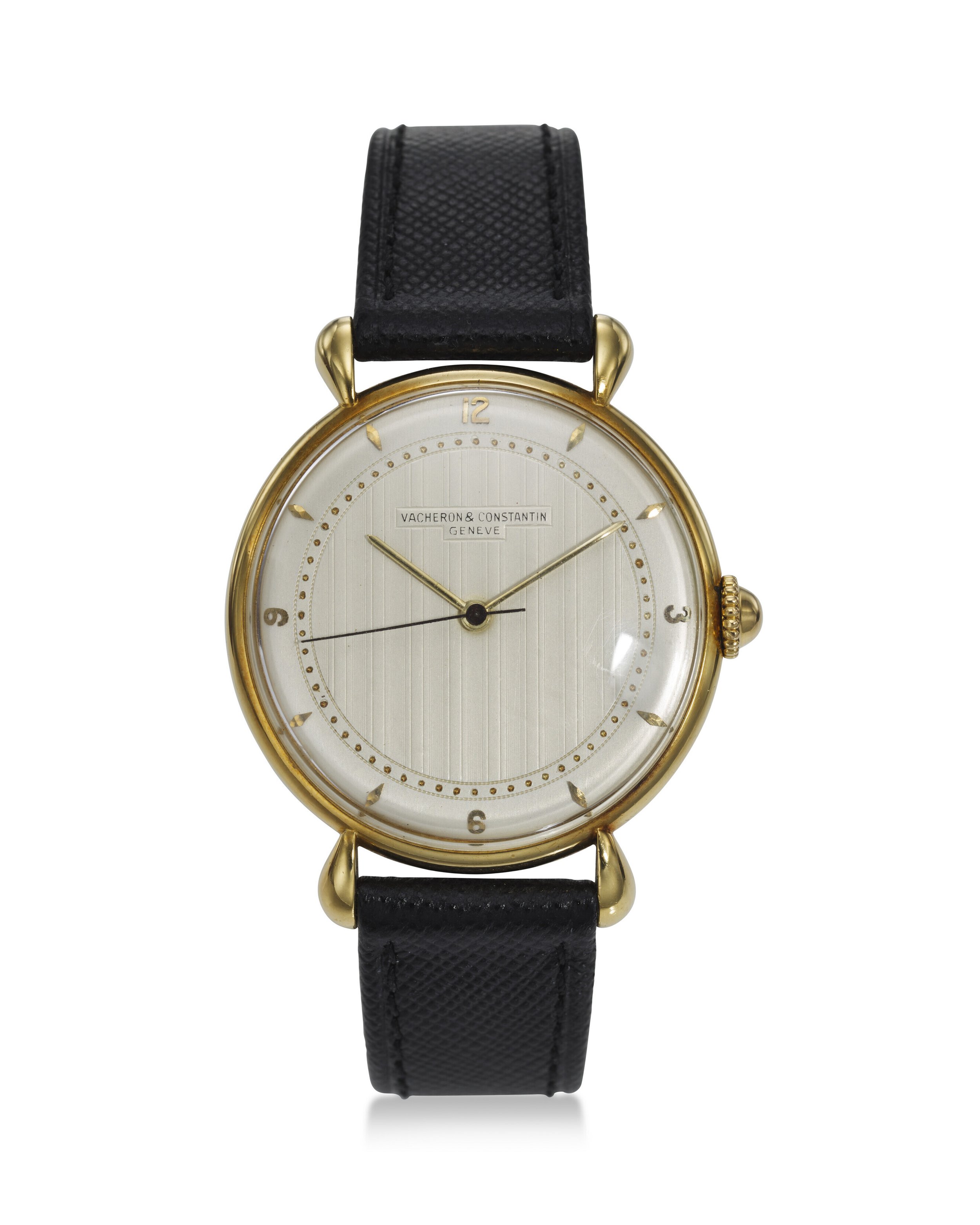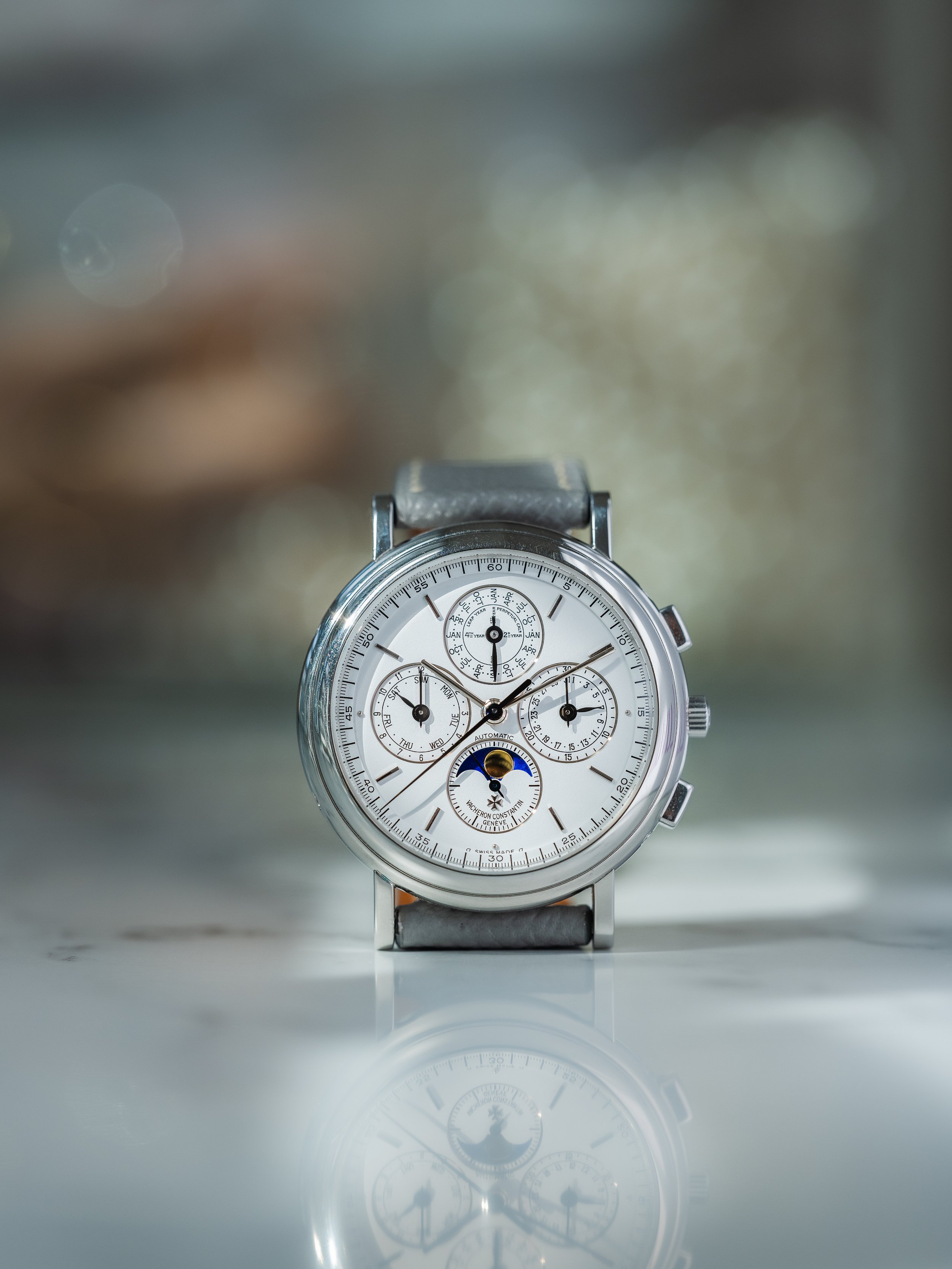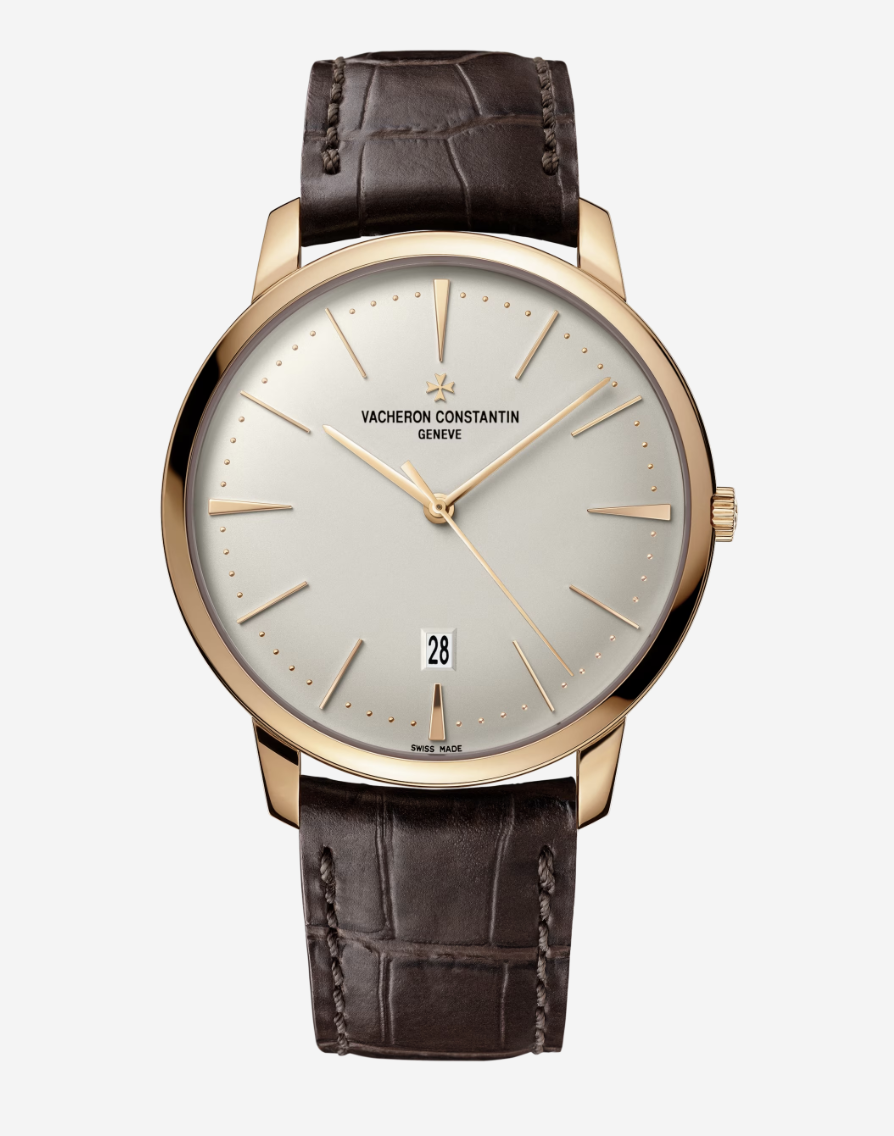Vacheron Constantin It’s Only Time
brief history of Vacheron’s round-case time-only watches leading up to current catalogue
Inspired by my recent collaboration with @langepedia, I decided to take a stab at my first longform article. It didn’t take me long to choose which brand to start with, as Vacheron Constantin has a special place in my heart. Amongst VC’s many storied and varied models and complications, I’ll start with the most classic of them all: round-case time-only dress watch. Let us see how this category evolved over time, leading up to the current catalogue and specifically Traditionnelle ref. 82172, manual-winding small seconds. Hope you have a happy time reading!
It’s Only Time
Like McDonalds’ Big Mac or Apple’s iMac, every major brand has a staple core product that entrenches them on the map. In the world of watches, mention the name ‘Calatrava’ and most of you can tell me its manufacture. What about Vacheron Constantin?
Do a quick search online for vintage Vacheron and you will find a handful from 1940s to 1960s. Reflecting the taste of that era, most dress watches are classically sized at around 34-36mm and in yellow gold.
My ‘Jumbo’ 🐮 in 38mm
Of the many varied examples, I am lucky to have found one with Vacheron’s iconic Cornes de Vache (cow horns) lugs in a ‘Jumbo’ size of 38mm from the 1950s. Another signaure design from Vacheron is their teardrop lugs, as seen in ref. 4218.
Ref. 4218, pic credit: Sotheby’s
Fancy lugs and artistic case shapes from Vacheron Constantin is a dissertation on its own, and I will touch on these in a separate article. Another noteworthy round case dress watch from that era is ref. 6073, with sculpted lugs inspired by a ‘branch’ of the Maltese cross.
Ref. 6073 made in 19-Fifty-Six, get it? Pic Credit: Vacheron Constantin
While there are many beautiful and unique executions in various shapes, lugs and sizes, there aren’t many serially produced for a long enough timeframe.
It’s not just duration of production, but also retaining some unique elements for a design to stick in our head.
If however, there was one example of a classic round-case, time-only dress watch to remember from this era, it would be ref. 6179 produced in 1957. Narrow bezel, slim indices, slender hands, some of you might realise this looks a lot like the current Patrimony. We will get there in a (long) bit.
Ref. 6179 from 1957. Pic Credit: Vacheron Constantin
enlarge to full screen for your viewing pleasure
From 1970s to late 80s, post-war exuberance was marred by what is now known as the Quartz crisis. Instead of bowing out, Vacheron Constantin double downed on their horological prowess, releasing an automatic perpetual calendar ref. 43031 in 1983. On the sportier front, Vacheron also pursued the sports watch market with ref. 222 in 1977, which was recently revived as part of the Historiques collection to much of our delight.
Stainless ste… nah. This is the potentially unique ref. 222 in White Gold (1982).
Photo taken at Phillips preview. Watch hammered on 14 May 2023 for CHF 571,500
In 1992, Vacheron reminded everyone of their place in the exalted Holy Trinity with ‘Les Complications', a collection ranging from skeletonisation, tourbillon, minute repeater and perpertual calendar chronograph. At the pinnacle sits a minute repeater featuring the legendary Cal. 1755, with the reference of 300XX. There is also a gorgeous self-winding perpetual calendar chronograph (ref. 49005) just to name two of the heavy-hitters from this line-up.
Ref. 49005 perpetual calendar chronograph in platinum, with a self-winding calibre 1136QP based on F.Piguet 1185.
With all these headliners, it is no surprise the simpler time-only pieces are overshadowed, though not forgotten. Let us turn our eyes back to the classics.
Malte
By the turn of millenium, Vacheron launched the Malte collection with its signature flared double-stepped lugs. The Grande Classique (ref. 81000) featured a small sub-seconds at 6 o’clock, with a beautiful guilloché dial and bi-faceted sword hands.
Malte Grande Classique Ref. 81000, Pic Credit: Watchfinder.Co
The Malte Grande Classique was produced for almost a decade and during which, this classic round case was used for many complications like Chronograph and Perpetual Calendar, Retrograde date. Point is, Malte stuck around long enough for it to be recognised as a part of Vacheron’s core product line.
While its round case was retired, the Malte lives on today in a Tonneau-shaped case that saw a dedicated and consistent rebranding since 2012, which was also the 100th anniversary of Vacheron’s first ‘barrel’ shaped wristwatch.
Patrimony
Before we look at today’s catalogue, let’s rewind a little to 2001 when the name ‘Patrimony’ was first used. At 35mm featuring a slim bezel, elegant leaf hands and slender indices, ref. 81160 Patrimony Classique laid the aesthetic foundations for its bigger (literally) brother that was released in 2004, itself inspired by the aforementioned ref. 6179 from 1957.
ref. 81160, Patrimony Classique. Pic Credit: Watchbox
The ‘Grande Taille’ (big size in French) is the Patrimony that we are all familiar with, and is still in production today. One might be aghast to hear that this dress watch ref. 81180 runs a span of 40mm diameter. Yet, its very slim profile of 6.79mm belied its largeness, made possible by the handwound Cal. 1400 that was first featured in Malte Grand Classique ref. 81000.
Ref. 81180, Patrimony Contemporaine launched in 2004 Pic Credit: Vacheron Constantin
I like how the dial is actually curved, and that’s not all. Even the hands are slightly bent at the tip, following the curvature of the domed dial. In 2006, this ‘big size’ Patrimony was affixed the term ‘Contemporaine’ as opposed to the other dress watch line - Traditionnelle.
As the word Contemporaine suggests, this model reflects modern day elegance with a very clean two-hander dial, devoid of any excesses. Yet for some (myself included), we would like to know if a watch is alive without listening to its heart beat. In 2014, Vacheron released ref. 85180, a self-winding Patrimony with a central seconds hand.
Ref. 85180, Patrimony Self-winding. Pic Credit: Vacheron Constantin
They went one step further by adding a small date window at 6, which I personally think is one of the best position for a secondary display. Few years later in 2017, Vacheron released the Patrimony CEP with a sub-seconds. It also came with an open caseback to showcase the beautiful manual-wound Cal. 4400.
CEP = Collection Excellence Platine, limited to 150pcs. Pic credit: watch-insider
Patrimony Traditionnelle
The Traditionnelle model was first launched in 2007 with much fanfare and in a few case variants. The craziest of them all was ref. 80172, featuring 3 grand complications - Perpetual Calendar, Tourbillon, Minute Repeater in a 44mm case. In a more modest 39mm case is the skeletonised perpetual calendar ref. 43172 which for me, is one of the most beautiful modern timepiece that Vacheron has ever produced.
Ref. 43172 belonging to my buddy, @noobwatchcollector.
The time-only Traditionnelle ref. 82172 was only released two years later in 2009. Vacheron’s Patrimony Traditonnelle case is clearly designed for great things but right now, you might be confused with the nomenclature of their dress watch lines.
Patrimony or Traditionnelle?
In around the same period (2009-2010), Vacheron decided to have a better distinction between their two main dress watch models. The Patrimony Contemporaine is renamed as Patrimony, with its slim bezel, slender indices, domed dial and curved-tip minute hand.
Meanwhile, the Patrimony Traditionnelle is simply called Traditionnelle, identified by its double stepped flanks and lugs, dauphine hands and railway minute track, as seen in ref. 82172.
Traditionnelle Small Seconds Ref. 82172/000R Pic credit: Vacheron Constantin
Traditionnelle ‘Collection Excellence Platine’ (CEP) - ref 82172/000P-B527
I for one, absolutely agree with this cleavage. In the next article, I will touch on the various variants of Traditionnelle and its overall design.
Parting Words
Even though it is the most fundamental function of a watch, there are many different expressions of telling time. Asking me to pick between the Patrimony and Traditionnelle is as difficult as tracing the roots of Vacheron Constantin - a lengthy discussion. After all, VC is one of the oldest watch manufacture in the world with many iconic designs.
Here, I would like to acknowledge the immense effort by those before me. Big thanks to Mr Alex Ghotbi and his 'The Hour Lounge’ project and moderators on Watchprosite, WHL and Tick Talk. Thanks for reading and I look forward to hear what you think.
TLDR: Vacheron has many iconic designs.














